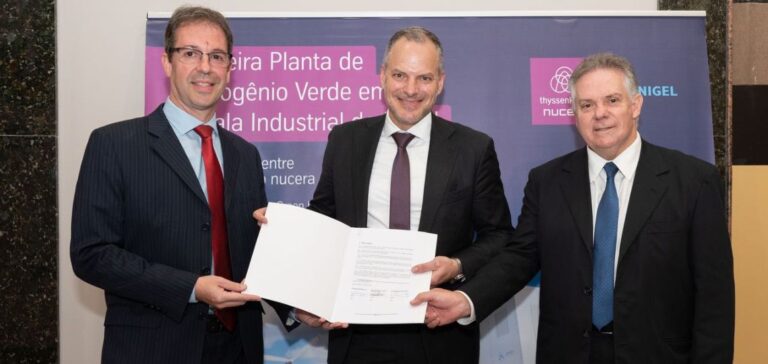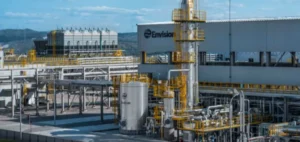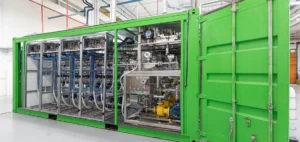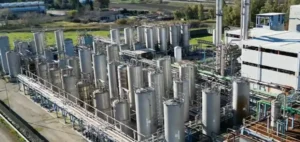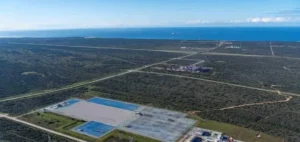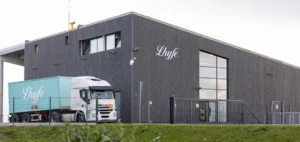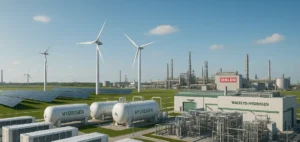A new agreement has been signed between thyssenkrupp nucera and Unigel to increase the capacity of a green hydrogen plant the Brazilian company is developing in Bahia, Brazil. This Memorandum of Understanding, or MoU, was signed during the visit of the German Federal Minister for Economic Affairs and Climate Action, Dr. Robert Habeck, to Belo Horizonte.
The new capacity of the green hydrogen plant
With this agreement, Unigel’s green hydrogen plant will be the first industrial-scale green hydrogen plant in Brazil. Its total water electrolysis capacity will increase from 60 MW to 240 MW, with standard thyssenkrupp nucera electrolysers. In the first phase, the plant will have an initial production capacity of 10,000 tons/year of green hydrogen and 60,000 tons/year of green ammonia. Delivery of the plant is scheduled for the end of the year.
A strategic partnership between Unigel and thyssenkrupp nucera
Unigel is one of the largest chemical companies in Latin America and the largest producer of nitrogen fertilizers in Brazil. The new partnership with thyssenkrupp nucera will enable Unigel to offer green hydrogen and green ammonia to customers seeking to decarbonize their production chains, such as steel companies, oil refineries and ammonia producers. Green ammonia will also be used in Unigel’s value chain, as it is a raw material for the production of fertilizers and acrylics.
A key step for green transformation
The signing of this agreement is a key step for thyssenkrupp nucera and Unigel to continue their successful collaboration to accelerate green transformation through the development of the green hydrogen economy worldwide. “Brazil has not only defined ambitious climate protection plans, but is also implementing them. This includes consistently exploiting the opportunities offered by green hydrogen. Indeed, Brazil is one of the nations predestined to play a key role in the green transformation by consistently tapping into the potential of renewable energy. With our technologies for the development of a hydrogen economy, we are helping to pave the way for the green transformation,” says Dr. Werner Ponikwar, CEO and President of thyssenkrupp nucera AG & Co. KGaA.
Strengthening economic relations and climate cooperation
The German Federal Minister for Economic Affairs and Climate Action, Dr. Robert Habeck, has planned a trip to Brazil and Colombia from March 11 to 15. This visit aims to strengthen economic relations and climate cooperation with these two countries. Indeed, Brazil and Colombia have a key role in protecting the global climate and are major players in the energy transition and the fight against climate change.

